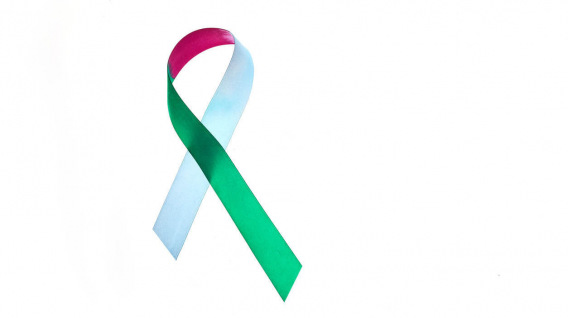Rare Disease Month Advocacy Offers Mental Health Benefits
Health & WellnessWritten by Dana Nolan, MS, LMHC | Edited By Amy Edel

For mesothelioma patients and their loved ones, February is an important opportunity to spotlight this particularly rare cancer as well as other asbestos-related diseases. Both Rare Disease Awareness Month and National Cancer Prevention Month, there are holidays throughout the month, including International Children’s Cancer Day on February 15, that will culminate in Rare Disease Day on February 28.
According to the most recently available mesothelioma statistics, only approximately 3,000 people in the U.S. are diagnosed with mesothelioma each year. Because mesothelioma is so uncommon, many patients and caregivers value awareness campaigns that can help spark public interest, education and engagement.
Advocacy can take many different forms. Becoming involved in raising awareness or taking action to help others with the same diagnosis can be an empowering experience with mental health benefits.
Awareness, Screenings and Treatment
February kicked off with World Cancer Day on February 4 and a theme that will carry through 2024 – “close the gap of care” – with the goal of addressing local and global inequalities in cancer prevention, advocating for improvements in clinical care and uniting people, organizations and policy makers. The Union of International Cancer Control first set aside this day each year to raise awareness in 2000.
This year the aim was to celebrate progress made in cancer care. The American Cancer Society published a study in January that indicated the cancer death rate in the U.S. has dropped 32% since its peak in 1991. The largest reduction in cancer death rate was among lung cancer patients. Advances in screening and early diagnosis and improvements in treatment were all considered factors in the decline. The study demonstrates the importance of increased awareness.
Because mesothelioma is so rare, it can be difficult to accurately diagnose, underscoring the importance of a second opinion to mitigate the risk of an initial misdiagnosis. Knowing your risk of asbestos exposure and the complexities of malignant mesothelioma, and discussing your risk with your doctor, can help ensure you have access to the right screenings to diagnose mesothelioma earlier, helping you have more mesothelioma treatment options and the ability to begin treatment sooner.
Mesothelioma Prevention and an Asbestos Ban
The challenge with preventing mesothelioma is that many people aren’t aware that they’ve been exposed to asbestos. Asbestos is the primary cause of mesothelioma and 50 countries in the world have banned the production and use of all asbestos products because of the health risks associated with asbestos exposure.
The U.S. is not one of those countries, unfortunately. Despite a long history of efforts to achieve an asbestos ban, it’s still legal for products with small amounts of asbestos to be used in this country. The chloralkali industry, for example, increased its importation of raw chrysotile asbestos into the U.S. dramatically last year, importing 114 metric tons in just the first three months of 2022 alone.
Letting your legislator know about your diagnosis and that you don’t support the use of any asbestos products may help to make a difference on a bigger scale. You may also get involved with larger organizations and lobbying groups focused on banning asbestos altogether.
Rare Disease Day spotlights how uncommon a mesothelioma diagnosis is. Children’s Cancer Day reminds us that mesothelioma in young adults and children makes up an extraordinarily low number of cancer cases, but there are a few hundred cases globally. Environmental exposure, secondhand exposure from a family member, exposure in children’s products that contain asbestos-contaminated talc and home or school exposures may account for cases of mesothelioma in children.
Getting Involved in Cancer Advocacy
Cancer patients who become involved in advocacy report that they find their efforts challenging at times but also very rewarding and empowering. For patients and loved ones interested in getting involved in the mesothelioma community, there are many ways to make a difference.
Talking to friends and family can be a great place to start. Because mesothelioma is such a rare type of cancer, most people are not familiar with mesothelioma signs and symptoms. Talking to your family and friends about your presenting symptoms and the steps you took to get diagnosed may help someone else experiencing similar symptoms to get diagnosed earlier.
Raising money for mesothelioma support services and clinical research is another popular way that many feel they can make a difference. Because mesothelioma makes up such a small percentage of all cancers in the U.S, fundraisers for mesothelioma research are not as high profile as other fundraising campaigns. Writing a letter to your elected officials and sharing your personal story may influence them to support funding measures for mesothelioma research. Participating in events, volunteering, engaging with support groups and sharing your advocacy on social media are also ways to help and honor National Cancer Prevention Month and its holidays such as Rare Disease Day.




